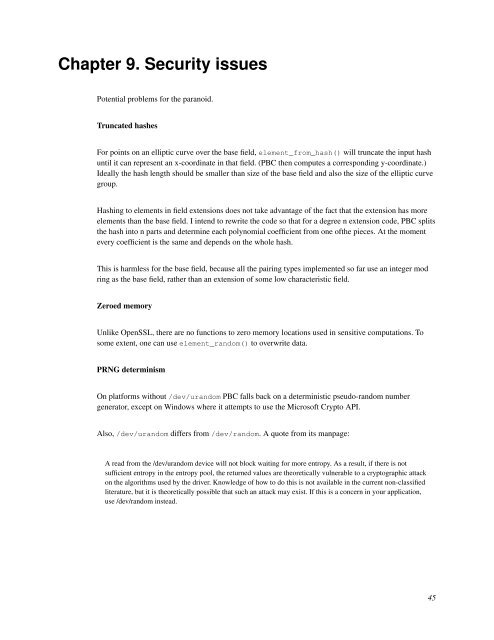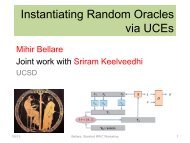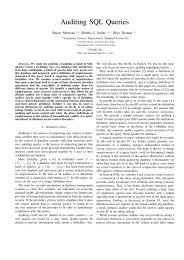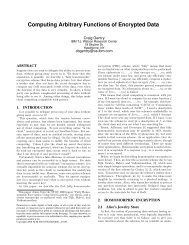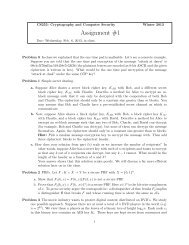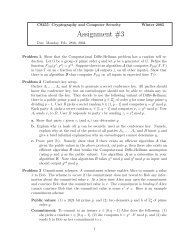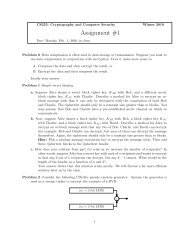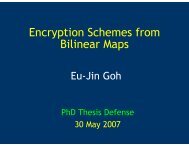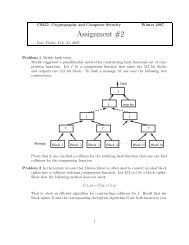PBC Library Manual 0.5.11 - Stanford Crypto Group
PBC Library Manual 0.5.11 - Stanford Crypto Group
PBC Library Manual 0.5.11 - Stanford Crypto Group
Create successful ePaper yourself
Turn your PDF publications into a flip-book with our unique Google optimized e-Paper software.
Chapter 9. Security issues<br />
Potential problems for the paranoid.<br />
Truncated hashes<br />
For points on an elliptic curve over the base field, element_from_hash() will truncate the input hash<br />
until it can represent an x-coordinate in that field. (<strong>PBC</strong> then computes a corresponding y-coordinate.)<br />
Ideally the hash length should be smaller than size of the base field and also the size of the elliptic curve<br />
group.<br />
Hashing to elements in field extensions does not take advantage of the fact that the extension has more<br />
elements than the base field. I intend to rewrite the code so that for a degree n extension code, <strong>PBC</strong> splits<br />
the hash into n parts and determine each polynomial coefficient from one ofthe pieces. At the moment<br />
every coefficient is the same and depends on the whole hash.<br />
This is harmless for the base field, because all the pairing types implemented so far use an integer mod<br />
ring as the base field, rather than an extension of some low characteristic field.<br />
Zeroed memory<br />
Unlike OpenSSL, there are no functions to zero memory locations used in sensitive computations. To<br />
some extent, one can use element_random() to overwrite data.<br />
PRNG determinism<br />
On platforms without /dev/urandom <strong>PBC</strong> falls back on a deterministic pseudo-random number<br />
generator, except on Windows where it attempts to use the Microsoft <strong>Crypto</strong> API.<br />
Also, /dev/urandom differs from /dev/random. A quote from its manpage:<br />
A read from the /dev/urandom device will not block waiting for more entropy. As a result, if there is not<br />
sufficient entropy in the entropy pool, the returned values are theoretically vulnerable to a cryptographic attack<br />
on the algorithms used by the driver. Knowledge of how to do this is not available in the current non-classified<br />
literature, but it is theoretically possible that such an attack may exist. If this is a concern in your application,<br />
use /dev/random instead.<br />
45


